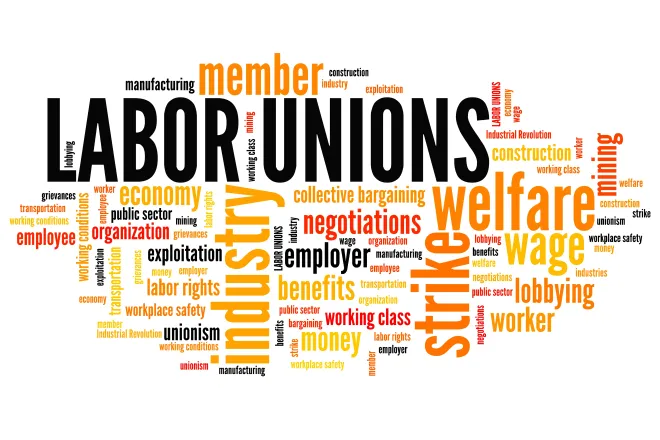
Daily Audio Newscast - August 29, 2024
News from around the nation.
Recent Supreme Court decision could shape animal farm regulations, power of unmarried women may shape Ohio's 2024 vote, and controversial Midwest oil pipeline project moves to its next phase after public comment wraps up.
Transcript
This is the Public News Service Daily Newscast for Thursday, August 29, 2024.
I'm Mike Bowen.
The U.S. Supreme Court has kept a block on President Joe Biden's student loan relief program.
The BBC says it would extend payment periods and effectively forgive outstanding debts of $12,000 or less.
Last year, the court struck down the Biden administration's attempt to cancel as much as $400 billion in student loans.
And earlier this summer, Republican-led states sued to stop the latest program, known as SAVE, saying Mr. Biden had overstepped his authority.
Lower courts have put SAVE on pause while the lawsuits play out, and in an emergency ruling the Supreme Court backed one of those injunctions.
More than one in ten Americans hold federal student debt.
President Biden has touted the SAVE initiative, describing it as the most affordable student loan repayment plan ever.
In a separate recent move, the U.S. Supreme Court overruled decades-long precedent in how federal agencies make decisions.
Now, livestock corporations, animal advocates and others wait for the fallout.
Kathleen Shannon has more.
The nation's highest court in June overruled a nearly 40-year-old practice known as Chevron deference, which says that when it comes to interpreting a vague law, courts should defer to agency expertise instead of interpreting law themselves.
Larissa Leibman with the Animal Legal Defense Fund says the overturned rule will likely change the work federal agencies do, including around wildlife and livestock.
That could, in the end, also end up taking away tools we use to try and protect animals.
Leibman says the decision is evidence of a tipping of the scales toward deregulation.
In the court's majority opinion, Chief Justice John Roberts wrote that Chevron kept judges from judging.
This story was produced with original reporting from Marlena Williams for Sentient.
I'm Kathleen Shannon.
In other news, public comment ends this week for a permit needed for a high-profile oil pipeline project in northern Wisconsin.
Opponents, including Tribal Voices, as well as supporters, have laid out recent organizing efforts ahead of an application decision.
The U.S. Army Corps of Engineers will eventually decide on an environmental permit sought by Canadian firm Enbridge to reroute a section of its Line 5 pipeline around the Bad River Reservation.
Tribal leaders have been engaged in a legal fight with the company over its existing line, which currently covers 12 miles of reservation land.
Earth Justice Attorney Gussie Lord represents the tribe and says the new plan fails to ease concerns.
In fact, it really extends the dangers of the pipeline and increases the threat of a devastating oil spill.
Her group and other environmental organizations say more than 150,000 comments are being submitted that reflect these concerns.
A separate coalition of labor, business, and agricultural groups says it gathered roughly 14,000 signatures in support of the reroute.
This is PNS.
Vice President Kamala Harris will sit down with CNN tonight for her first interview since President Joe Biden opted not to seek re-election, paving the way for Harris to rise to the top of her party's ticket.
According to the Associated Press, the Democratic presidential nominee will be joined by her running mate, Minnesota Governor Tim Walz, in an interview with anchor Dana Bash in Savannah, Georgia.
The interview will air at 9 p.m. Eastern time tonight.
In Ohio, the upcoming election could hinge on the voting patterns of unmarried women younger than 55, a group that's proving to be a key demographic in recent polls.
According to Lake Research Partners President Celinda Lake, there's a significant opportunity to mobilize this group, especially given their concerns about economic issues and reproductive rights.
In our latest research, there's a real opportunity among unmarried women under 55.
This is a constituency that votes very Democratic, but often feels like the campaigns don't speak to them, that they're not in touch with their lives.
In Ohio, more than a million unmarried women younger than 55 are eligible to vote.
Lake says despite their traditionally low turnout, events such as the abortion initiative have sparked new interest.
She says with only 59 percent feeling very motivated to vote, campaign outreach and engagement will be key.
Beyond reproductive rights, economic concerns, such as the rising cost of housing and health care are front and center for these voters.
Also on the civic engagement front, a project out of Ohio is working to bridge the political divides harming the country's democracy.
Eric Tagetoff has more.
The United Vision Project facilitates meaningful conversations between people with differing views.
Nancy Peligano says volunteers are trained in the authentic relational conversations technique.
I do not argue with people.
I don't tell people they are wrong.
I listen.
Peligano says she joined the project four years ago because of the divisive rhetoric she'd been hearing since Barack Obama's presidency.
She wanted to learn what was dividing people and find a way to connect with them on a deeper level to help heal the country.
The program has volunteers, but it also finds people who may be secluded, such as those in rural areas.
Peligano says many people simply don't feel heard.
We are reaching folks that people don't talk to, that I think sometimes feel like they are forgotten.
And so those conversations can be really powerful and really important.
Peligano says it can be difficult talking to someone with different beliefs than her.
People can get angry and she understands there's hurt behind that anger.
But she finds these conversations are worth it.
Peligano says the program has helped her grow as a person, and she hopes it can also help heal the country's wounded democracy.
Talking to people that think differently is very powerful.
I'm Eric Tegethoff reporting.
This is Mike Moen for Public News Service, member and listener supported, heard on interesting radio stations and your favorite podcast platform.
Find our trust indicators at publicnewsservice.org.
















